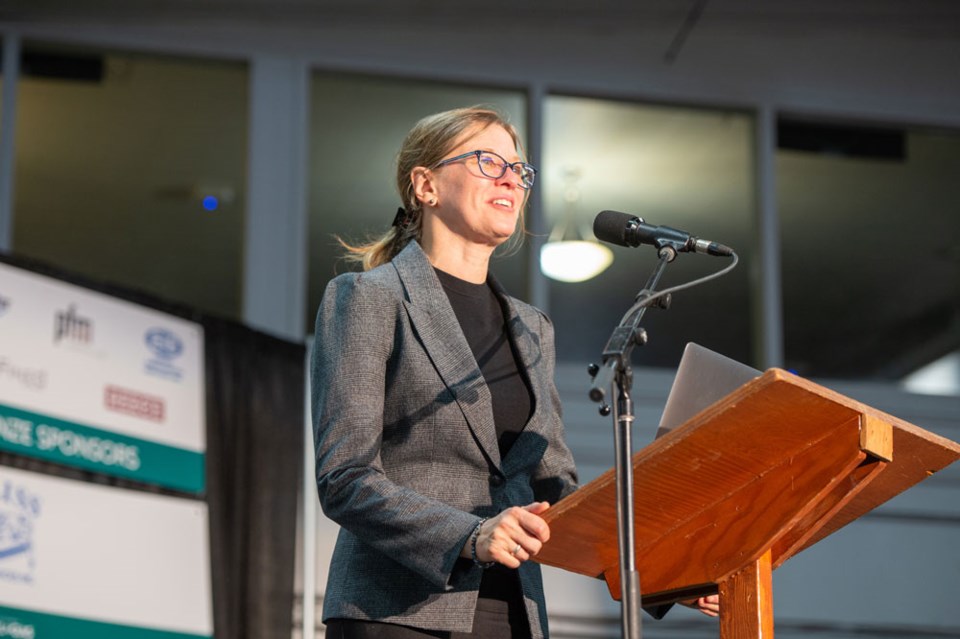Writer and researcher Vivian Krause’s documentary, Over a Barrel, was released on Oct. 8 on Vimeo, after showings in Calgary and Edmonton in the days before.
The 32-minute long documentary distills what Krause has been saying for years – that foreign-funded groups have been trying to landlock Canadian oil. It’s a message that she presented at the Saskatchewan Oil and Gas Show in Weyburn in June. Krause basically followed the money.
The video is not free to view. There’s a $4.99 cost to it, but as $174,945 was raised on GoFundMe towards a $160,000 goal to support the project, that’s not likely to be much of an impediment for viewers interested in its topic.
“There’s a global movement to go off fossil fuels. Even the oil industry is onboard,” Krause notes in the video. “But not in the United States.”
The video cuts from N. Murray Edwards of Canadian Natural Resources Ltd., speaking about climate change and protecting jobs, to a news broadcast about the growth of the Permian Basin in West Texas.
“Here in Canada, we can’t build pipelines. We can’t even build a natural gas pipeline to help China get off coal,” Krause says. “Without pipelines, Canada can only sell oil and natural gas to the United States. So the U.S. has a monopoly on Canada, and no incentive to pay world prices. Last fall, it got so bad, that Canadian oil producers were losing $50 on every barrel of oil.”
“Building pipelines is about breaking the American monopoly that has Canada over a barrel,” she said, as the video’s title is shown.
The reason pipelines are now in the news is the “Tar Sands Campaign,” Krause says, noting she stumbled across it in June 2010 when she was looking into the “fish farm fuss,” as she put it.
She traces links from opposition to fish farming to similar opposition to the oil sands.
The documentary includes several Indigenous people and their perspectives. Karen Ogen-Toews, CEO, First Nations LNG Alliance and former chief of the Wet’suwet’en First Nation, is one. Ellis Ross, MLA for Skeena and former chief councillor of the Haisla Nation, is another. Ross spoke about giving his people a purpose in life through economic development through oil and gas. Wilson Brown, former chief councillor, Haida Nation, also contributed.
Krause speaks of how the net effect of this is the subsidization of energy in the U.S.
She explains how hundreds of millions of dollars were provided by American foundations to groups in Canada to oppose the export of Canadian oil and gas by tankers. She also points out that the B.C. coast is targeted, but not Alaska, Oregon, or California, where you can see offshore drilling rigs from the beach.
Krause links Justin Trudeau confidant and former senior advisor Gerald Butts to the campaign, including a $297,000 severance package when he left the World Wildlife Fund, where he had been president and CEO.



